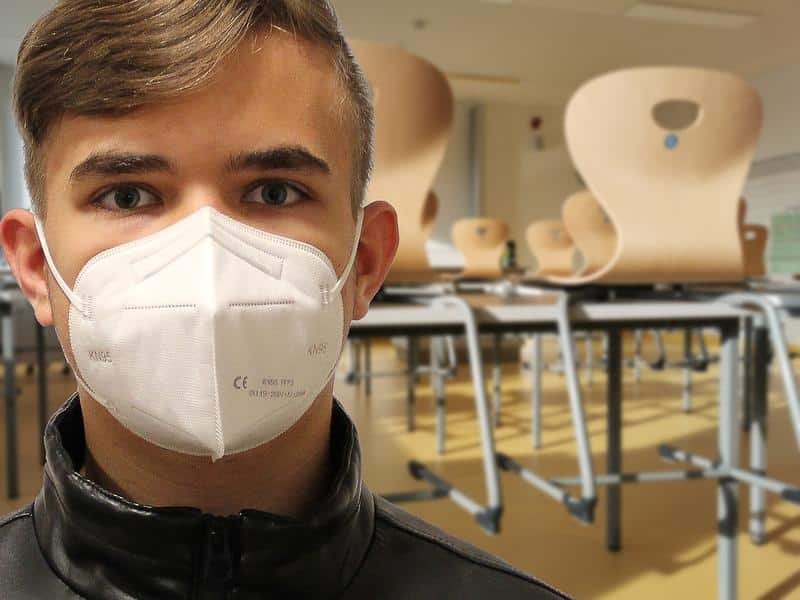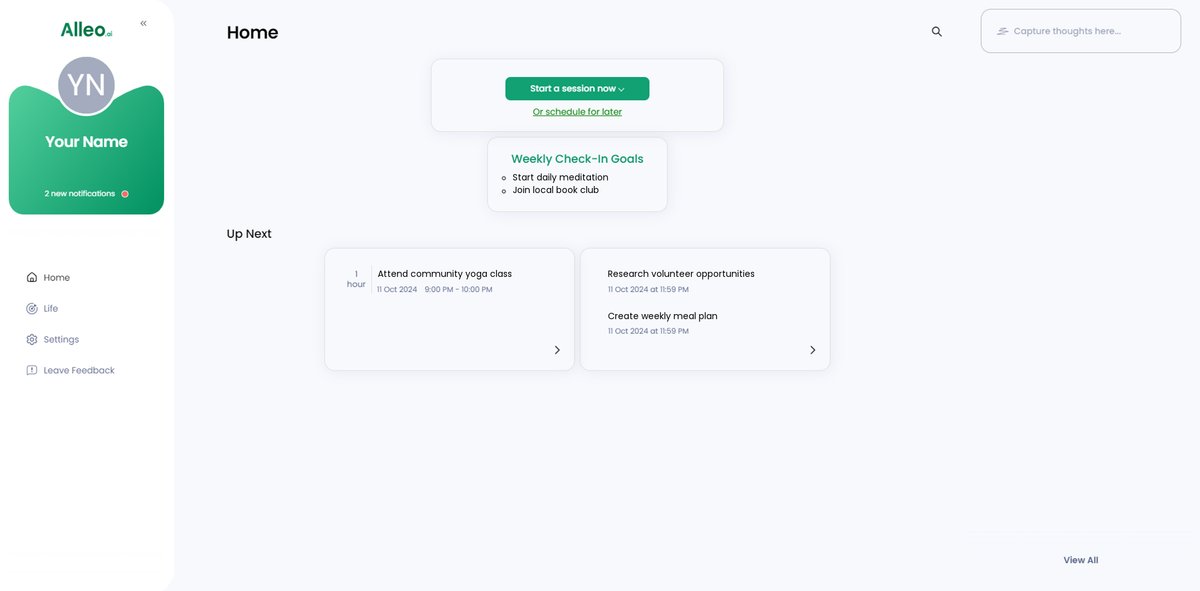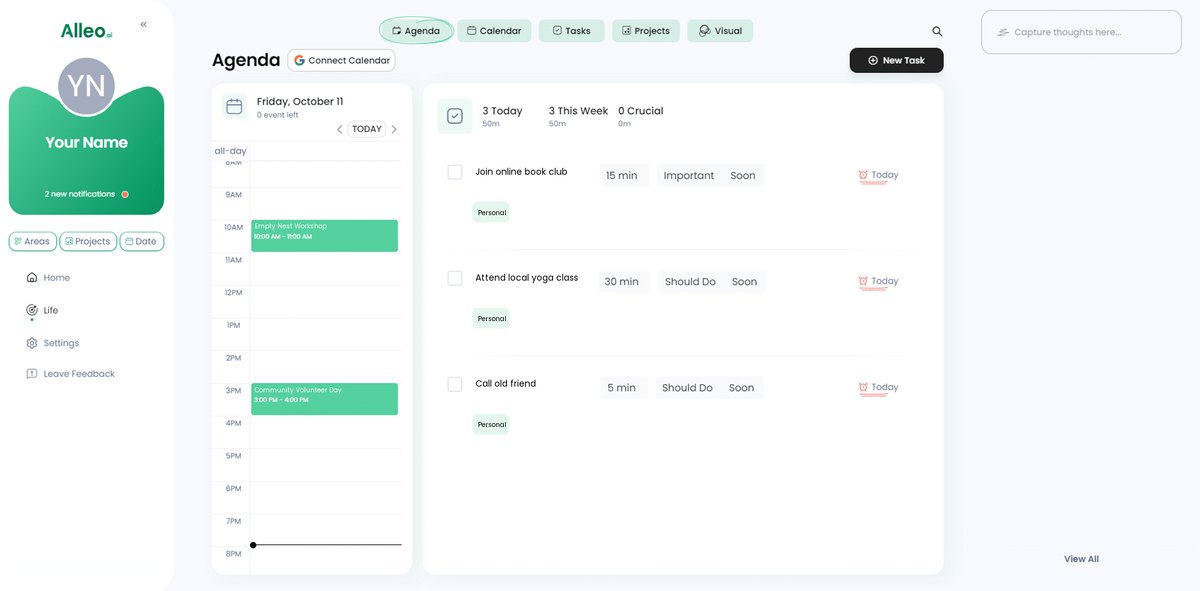6 Best Skills for Empty Nesters to Learn for Personal Growth and Fulfillment
Are you feeling uncertain about what to do next now that your children have left home? Personal growth for empty nesters can be both exciting and challenging.
As a life coach, I’ve helped many empty nesters navigate this new chapter. I’ve seen firsthand how finding new skills and interests can transform lives, offering opportunities for self-discovery for midlife adults.
In this article, you’ll discover six strategies for personal growth that are both achievable and beneficial. These strategies will help you turn the empty nest phase into a period of self-discovery and fulfillment, exploring lifelong learning opportunities for seniors and new interests for parents with grown children.
Let’s dive into this empty nester’s guide to self-improvement.

Understanding the Empty Nest Struggle
It’s common for empty nesters to feel lost once their children leave home. Many clients initially struggle with loneliness and a lack of direction, making personal growth for empty nesters a crucial focus.
Without the daily routines and responsibilities of parenting, it’s easy to experience an identity crisis. In my experience, people often find this phase overwhelming, which is why empty nest syndrome coping strategies are essential.
I’ve seen clients describe feelings of emptiness, having dedicated years to their children. The sudden change can be jarring, highlighting the need for self-discovery for midlife adults.
However, this phase also offers a unique chance for personal development for empty nesters. By focusing on new skills and interests, you can transform this period into one of fulfillment and discovery, embracing lifelong learning opportunities for seniors.
Ready to explore how? Let’s continue with this empty nester’s guide to self-improvement.

Key Steps to Personal Growth for Empty Nesters
Overcoming this challenge requires a few key steps. Here are the main areas to focus on for personal growth for empty nesters:
- Explore lifelong learning opportunities: Attend seminars, join book clubs, or pursue new certifications as part of your empty nester’s guide to self-improvement.
- Develop a new creative hobby or skill: Try painting, learning an instrument, or exploring digital creativity – perfect hobbies for empty nesters.
- Practice mindfulness and self-reflection: Incorporate meditation, journaling, and yoga into your routine as empty nest syndrome coping strategies.
- Strengthen existing relationships: Reconnect with friends, deepen family bonds, and engage in couples’ activities to support personal development for empty nesters.
- Volunteer or engage in community service: Volunteer locally, mentor young adults, and participate in community events as new interests for parents with grown children.
- Set personal health and fitness goals: Create a fitness plan, monitor your diet, and join fitness groups as part of reinventing yourself after parenting.
Let’s dive in to explore personal growth for empty nesters!
1: Explore lifelong learning opportunities
Lifelong learning is essential for personal growth for empty nesters and fulfillment during the empty nest phase.
Actionable Steps:
- Enroll in a course: Sign up for a class at a community college or online platform to learn a new subject, perfect for self-discovery for midlife adults.
- Join a book club: Participate in a local or online book club to discuss literature and expand your horizons, an excellent hobby for empty nesters.
- Pursue certifications: Obtain a certification in a field like real estate, accounting, or AI prompting to boost your skills, ideal for career transition after children leave home.
Explanation:
Engaging in lifelong learning keeps your mind active and helps you discover new passions. It’s a great way to fill your time meaningfully and can lead to new opportunities, supporting personal development for empty nesters.
For instance, the ASU Lifelong Learning program offers courses tailored for adults seeking personal growth. Embracing education can transform this transition into a rewarding experience, serving as one of the empty nest syndrome coping strategies.
Remember, it’s never too late to learn something new and exciting, making it an ideal time for empty nesters to focus on personal growth and explore new interests for parents with grown children.

2: Develop a new creative hobby or skill
Engaging in creative hobbies can significantly enhance your sense of fulfillment and joy during the empty nest phase, making it an excellent opportunity for personal growth for empty nesters.
Actionable Steps:
- Join a local art class: Enroll in a painting or pottery class to explore your artistic side. Attend sessions weekly to build a routine, fostering personal development for empty nesters.
- Learn a musical instrument: Take beginner lessons for instruments like the piano or guitar. Commit to practicing at least 15 minutes daily, exploring new interests for parents with grown children.
- Explore digital creativity: Learn photography or graphic design through online tutorials. Share your digital artwork on social media to gain feedback, embracing skills to learn in your 50s and 60s.
Explanation:
Engaging in creative activities stimulates your mind and fosters a sense of accomplishment. These hobbies can introduce you to new social circles and enhance your overall well-being, serving as empty nest syndrome coping strategies.
For instance, many community programs offer courses tailored for adults, like those through the Raleigh Active Adult Program. Embracing creativity opens doors to new passions and lifelong learning opportunities for seniors.
Here are some benefits of developing a new creative hobby:
- Boosts self-confidence and self-expression
- Provides a healthy outlet for stress relief
- Creates opportunities for social connections
Remember, exploring new hobbies can be a rewarding and enriching experience, contributing to self-discovery for midlife adults and personal growth for empty nesters.

3: Practice mindfulness and self-reflection
Practicing mindfulness and self-reflection is crucial for empty nesters to find balance and clarity during this transition, supporting personal growth for empty nesters.
Actionable Steps:
- Start a daily meditation routine: Use guided meditation apps or online resources. Begin with just 5 minutes each morning, an effective empty nest syndrome coping strategy.
- Keep a journal: Write about your thoughts and feelings daily. Track your progress and set specific personal development for empty nesters goals.
- Incorporate yoga into your routine: Join a local yoga class or follow online sessions. Aim to practice at least twice a week as part of your self-discovery for midlife adults journey.
Explanation:
Incorporating mindfulness and self-reflection into your routine helps you stay grounded and connected to your inner self. These practices reduce stress and improve overall well-being, essential for personal growth for empty nesters.
For example, yoga not only enhances physical health but also fosters mental clarity, as discussed in the Cleveland Clinic’s guidance on empty nest syndrome. Embracing these practices can significantly enhance your journey of self-discovery and fulfillment, supporting lifelong learning opportunities for seniors.
Taking these steps can lead to a more mindful, balanced life as you navigate this new chapter and explore new interests for parents with grown children.

4: Strengthen existing relationships
Strengthening existing relationships is crucial for finding fulfillment and support during the empty nest phase, contributing to personal growth for empty nesters.
Actionable Steps:
- Reconnect with old friends: Reach out to friends you haven’t spoken to in a while. Plan regular meetups or virtual hangouts to stay connected, which can be an effective empty nest syndrome coping strategy.
- Deepen bonds with family: Set up regular family dinners or game nights. Participate in family activities and projects to strengthen your connections, fostering self-discovery for midlife adults.
- Engage in couples’ activities: Attend couples’ workshops or retreats. Take up a new hobby or class together with your partner, exploring new interests for parents with grown children.
Explanation:
Building and maintaining strong relationships can greatly enhance your emotional well-being and provide a support system during this transition. These connections help you feel less isolated and more engaged with your community, supporting personal development for empty nesters.
Engaging in activities like family projects or couples’ workshops can foster deeper bonds and create lasting memories. For example, the ASU Lifelong Learning program highlights the importance of social engagement and community involvement for personal growth, offering lifelong learning opportunities for seniors.
Taking these steps can lead to a more connected and fulfilling life as you navigate this new chapter, contributing to your journey of reinventing yourself after parenting.
5: Volunteer or engage in community service
Volunteering or engaging in community service can provide a sense of purpose and connection during the empty nest phase, offering personal growth for empty nesters.
Actionable Steps:
- Volunteer at local organizations: Dedicate a few hours each week to volunteering at animal shelters, food banks, or schools. Choose a cause that resonates with you, supporting personal development for empty nesters.
- Mentor young adults or children: Offer your guidance and support through local mentoring programs. Share your life experiences and skills with younger generations, enhancing self-discovery for midlife adults.
- Participate in community events: Join community clean-up drives or charity events. Help organize or lead community activities to stay engaged, exploring new interests for parents with grown children.
Explanation:
Engaging in community service helps build social connections and provides a sense of fulfillment. These activities allow you to contribute positively to society while also enhancing your personal growth for empty nesters.
For example, community programs like the Raleigh Active Adult Program offer numerous opportunities for volunteering and community engagement. By participating in these initiatives, you can make a meaningful impact and foster a sense of belonging, addressing empty nest syndrome coping strategies.
Consider these potential benefits of volunteering:
- Increased sense of purpose and fulfillment
- Expanded social network and community connections
- Improved mental health and well-being
Volunteering can truly enrich your life and help you stay connected with your community, supporting an empty nester’s guide to self-improvement.

6: Set personal health and fitness goals
Setting personal health and fitness goals is crucial for personal growth for empty nesters during this new phase of life.
Actionable Steps:
- Create a personalized fitness plan: Set specific, measurable goals like walking 30 minutes daily or joining a weekly fitness class, as part of your empty nester’s guide to self-improvement.
- Monitor your diet: Plan balanced meals focusing on nutrition. Use a food diary app to track your intake and make healthier choices, supporting your personal development for empty nesters.
- Join fitness groups or classes: Participate in group exercise classes like aerobics or cycling. Find a fitness buddy to stay motivated, exploring new interests for parents with grown children.
Explanation:
Maintaining health and fitness enhances your physical well-being and boosts mental health. Engaging in regular exercise and balanced nutrition keeps you active and energetic, helping with empty nest syndrome coping strategies.
Group activities foster social connections, reducing feelings of isolation. Programs like the Raleigh Active Adult Program offer various classes tailored for older adults, promoting an active lifestyle and lifelong learning opportunities for seniors.
Key components of a healthy lifestyle include:
- Regular physical activity and exercise
- Balanced and nutritious diet
- Adequate sleep and stress management
These steps help you stay fit and connected, paving the way for a fulfilling new chapter in personal growth for empty nesters.

Partner with Alleo on Your Personal Growth Journey
We’ve explored the challenges of embracing the empty nest phase and how to transform it into a period of personal growth for empty nesters. But did you know you can work directly with Alleo to make this journey of self-discovery for midlife adults easier and more fulfilling?
Here’s how Alleo can help you with personal development for empty nesters:
- Set Up Your Account: Sign up for Alleo and create your profile. This process is quick and straightforward.
- Create a Personalized Plan: Alleo will tailor a plan based on your specific interests and goals, including hobbies for empty nesters and career transition after children leave home.
- Work with Alleo’s Coach: Receive full coaching sessions that offer advice and support, just like a human coach, focusing on empty nest syndrome coping strategies.
- Monitor Your Progress: The coach follows up on your progress with regular check-ins, helping you explore new interests for parents with grown children.
- Stay Accountable: Alleo sends reminders and motivational messages via text and push notifications to support your personal growth for empty nesters.
With a free 14-day trial requiring no credit card, there’s no reason not to try this empty nester’s guide to self-improvement.
Ready to get started for free? Let me show you how to begin your journey of personal growth for empty nesters!
Step 1: Log In or Create Your Alleo Account
To begin your personal growth journey as an empty nester, Log in to your account or create a new one to access Alleo’s AI coaching tailored for this life transition.

Step 2: Choose Your Focus Area
Select “Improving overall well-being and life satisfaction” as your goal to address the challenges of the empty nest phase and embark on a journey of personal growth and fulfillment.

Step 3: Select “Personal” as Your Focus Area
Choose the “Personal” life area in Alleo to address empty nest challenges, aligning with the article’s emphasis on self-discovery and personal growth through new skills, hobbies, and mindfulness practices.

Step 4: Starting a Coaching Session
Begin your journey with Alleo by scheduling an intake session, where you’ll discuss your empty nest transition and set personalized goals for your new chapter.

Step 5: Viewing and Managing Goals After the Session
After your coaching session, open the Alleo app to find your discussed goals displayed on the home page, allowing you to easily track and manage your personal growth journey as an empty nester.

Step 6: Adding Events to Your Calendar or App
Use Alleo’s calendar and task features to add and track events related to your personal growth goals, such as fitness classes, volunteer commitments, or learning sessions, allowing you to easily monitor your progress and stay accountable on your journey to embracing your empty nest phase.

Embrace the Next Chapter: Your Journey to Personal Growth for Empty Nesters
Transitioning into new phases can be daunting, but it’s also a chance for personal growth for empty nesters.
We’ve covered how lifelong learning opportunities for seniors, creative hobbies for empty nesters, mindfulness, strengthening relationships, volunteering, and fitness can transform your empty nest experience. Each step is a pathway to rediscovering yourself and finding fulfillment in this new chapter of life.
Remember, you’re not alone in this journey of self-discovery for midlife adults. I’ve seen the positive impact these empty nest syndrome coping strategies can have on parents with grown children.
You have the power to turn this chapter into an exciting new adventure. Embrace these opportunities for personal development for empty nesters and overall well-being.
And don’t forget, Alleo is here to support you every step of the way in your empty nester’s guide to self-improvement. Try Alleo for free and see how it can help you thrive during this career transition after children leave home.